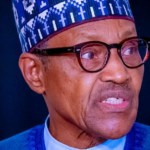The negative impact of illicit arms trafficking in Nigeria can be said to be the root of insecurity in the country, accounting for increasing violence and mass killings.
In March 2018, the Civil Society Legislative Advocacy Centre (CISLAC) noted that Nigeria accounts for about 70% of illegal small arms in West Africa.
A report, ‘CrimeJust: Fact Sheet Nigeria’ published by (CISLAC), said porous borders paves ways for free flow of arms in and out of Nigeria.
It is said to also contribute to increasing number of violent conflicts, constant human and drug trafficking which remain a challenge to authorities within and outside Nigeria.
The report notes that broken political system, corrupt law enforcers and social environment are contributories to many criminal activities.
It decries arms proliferation which it says is puts Nigeria at the epicentre of internationalised organised crimes.
“The established linkage between the worst forms of criminality at an industrial scale and the political elite is widely observed and documented both in Nigeria and internationally,” CISCLAC reported.
Air Commodore Yusuf Anas (rtd), the Executive Secretary of Centre for Crisis Communication (CCC) told Daily Trust that since the fall of the former Libyan leader, Muammar Gaddafi, it is known that a lot of weapons were taken away from that country.
He noted, “Definitely, there is a lot of weapons in the region as a result of the conflicts around the Lake Chad area, those firearms are being used for cross border crimes as well as insurgency.”
He said Boko Haram must have benefited from those weapons, adding, “The insurgents also over ran several military barracks where they were able to take away quite a number of arms and ammunition.”
A security expert, Kabir Adamu, said proliferation of arms clearly has a huge impact on insecurity in the country, noting that the number of weapons in circulation is aiding crime.
Adamu said, “Also, very important is the impact it is having on our elections, one trend that we have seen over time is politicians for some odd reasons engage non-state actors, usually youth gangs and arm them.”
He noted that in the Niger Delta, arms proliferation plays a role in gang activities and vandalism of crude oil assets by armed groups.
He said apart from the Niger Delta, there is the activity of militia groups in the Middle Belt, adding, “There is nothing you pick up in terms of the current security threats we are facing that is not aided by arms proliferation.”
He said the chatter in security circles indicate that the source of trafficked weapons may include former Soviet countries, China, Turkey, Libya and even the United States.
“The borders are porous, I mean all the borders, land, sea and air borders are very porous. The Customs has intercepted several weapons being brought into the country, experts have linked it to corruption,” he added.
He also said there is trade-off between oil bunkers and people who bring weapons to them through the sea borders in exchange for crude oil. He said government must enhance border control mechanisms, noting that the Customs is more concerned with revenue generation than taking steps to man the borders and prevent the importation of contrabands.
The Inspector General of Police (IGP), Ibrahim Idris on February 21, 2018 directed an immediate simultaneous disarmament and recovery of prohibited firearms, ammunition and weapons in the country.
Police joint task force teams in states and zones commenced the mop-up, seizure and recovery of illegal and prohibited firearms and ammunition. The exercise among other purposes is aimed at the full enforcement of the Firearms Act.
The mopping-up and recovery of prohibited firearms and illegally acquired weapons is to enable the police deal with clashes between herders and farmers, kidnappings, armed robbery, cattle rustling, militancy and terrorism.
A record of the mop up exercise obtained by Daily Trust showed that as at October 2017, 6,527 firearms were recovered.
A breakdown of the record showed that 671 AK-47 rifles, 594 pump action guns, 70 English Barreta pistols, 71 single and double barrel guns, 92 machine guns, one anti-air craft gun and 5,028 locally made guns were recovered.
Police spokesman, Acting Deputy Commissioner of Police (DCP) Jimoh Moshood, told Daily Trust that the figure has increased.
He said Thursday that the recovered firearms had risen above 10,000, and still counting. He noted that the exercise and interception of arms by the Customs had helped reduce crime rate in the country.
Recently at the House of Representatives, a bill for the establishment of a national commission against proliferation of small arms and light weapons passed second reading.
When established, the commission would be charged with the responsibility of combating illicit trafficking of arms by strengthening laws and regulations, reinforcing operational capacity and improving the system of tracing arms flow.
It is also expected to promote, removal of arms from society through collection, storage, destruction, management and stockpiling of small arms and light weapons, as well as control the manufacture and register small arms and light weapons including those to be used in peace keeping operations, update its register and transmit same to ECOWAS, AU and UN.
How weapons proliferation fuels insecurity in Nigeria

 Join Daily Trust WhatsApp Community For Quick Access To News and Happenings Around You.
Join Daily Trust WhatsApp Community For Quick Access To News and Happenings Around You.


